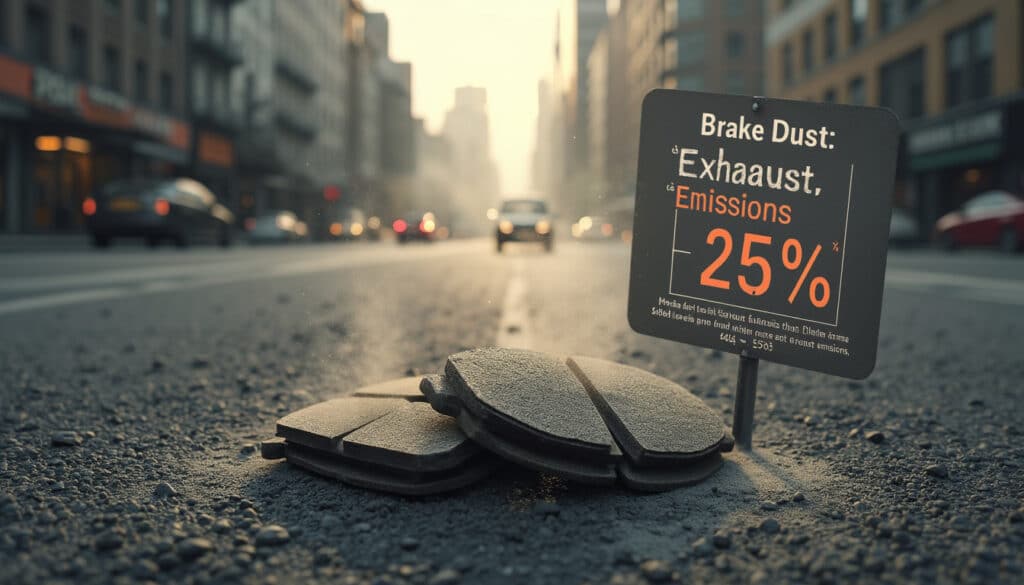A recent study highlights a often overlooked issue: the microscopic particles emitted by the abrasion of brake pads could surpass those from diesel vehicle exhaust in toxicity. This discovery raises crucial questions, especially since the shift to electric vehicles does not seem to provide a complete solution to road pollution. Scientists have established a link between a high concentration of copper in certain commonly used brake pads and increased harmful effects on sensitive lung cells. Pollution generated by the mechanical components of vehicles, such as brakes, is becoming an increasing health concern.

The Unexpected Toxicity of Brake Pads
A recent study conducted by the University of Southampton reveals that the particles emitted by brake pads could prove to be more toxic than the emissions from diesel vehicles. This discovery sheds light on an often ignored aspect of automobile pollution. Brake particles, composed of metals such as copper and iron, cause a more severe lung inflammation than that caused by particulate matter from exhaust fumes. Learn more about the study here.
The Impact of Electric Cars: A False Hope?
Many perceive electric vehicles as a miracle solution to urban pollution. However, this study shows that they continue to emit harmful particles through the wear of brakes and tires. The brakes of electric vehicles, although different in design, do not necessarily reduce particle pollution. These vehicles still contribute to air pollution through the friction of materials during driving, raising questions about the effectiveness of policies that only target exhaust emissions. Check out the analysis on the responsibility of auto brakes.
Towards Regulation of Brake Particles
Researchers are calling on authorities to extend European regulations to brake particles. According to a study conducted by the Royal Institute of Technology in Stockholm, innovations such as copper-free brake pads offer an alternative. However, evidence suggests that even these solutions pose non-negligible risks to human health. In this regard, visit the article on underestimated dangers.
Articles similaires
Thank you!
We will contact you soon.














